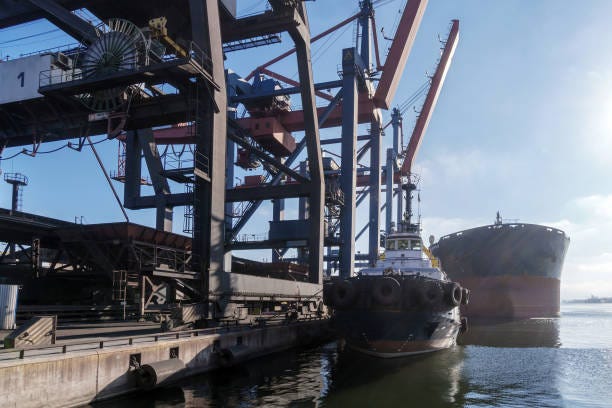
A volatile stock market, and an increase in gas prices are just some of the ramifications Minnesotans and others are likely to feel as Russia invades the Ukraine.
But University of Minnesota Professor Paul Vaaler says it goes beyond that for companies that do business with Russia. Vaaler, who is the John and Bruce Mooty chair in Law and Business, Strategic Management and Entrepreneurship at the University of Minnesota's Carlson School of Business, says Minnesota is home to several multinational companies, and some small ones as well, that have dealings with Russia.
Those include Digital River, an online marketing company in the Twin Cities that is partnered with Kaspersky Lab, a Russia based Professional Services organization, and food giant Cargill who put millions of dollars into infrastructure in the Ukrainian port city of Odessa.
3M and Toro, all Minnesota companies, are doing significant business in Russia. Vaaler says having a business in Ukraine right now comes with challenges.
“Toro has an agricultural business in Western Ukraine,” Vaaler explains. “Does about $2 million of business. They have issues they’re going to have to think about in terms of what they do for the security of their employees, their property, their equipment.”
Vaaler says this is new ground for many of these businesses.
“There are things that are particular to Minnesota, because of the kind of multinational companies we have, and the kind of connections they have, both in terms of big investments in the Ukraine, like Cargill, or interesting product relationships like Digital Rivers with (Russian company) Kaspersky Lab,” Vaaler explains. “That’s going to lead to conversations that rarely occur in board rooms. How do we secure assets at war time? How do we protect our people at war time? How do we make it possible for them to come back, if and when, the war subsides? That’s really where CEO’s, corporate council, and COO’s have to become corporate diplomats, or maybe a little bit of war strategist. That’s something we don’t train anyone for at business schools.”
Thursday night, it was reported by the agricultural trading giant Cargill, that a ship they had chartered was hit while in Ukrainian waters and is currently sailing south to Romanian waters to receive assistance. Vaaler says Cargill is particularly at risk due to the location of their infrastructure in Ukraine.
“The company I would watch right now is Cargill,” Vaaler says. “They have a large, multi-million dollar port facility in Odessa which is the major port on the Black Sea for Ukraine. You may have heard that Russian Naval troops and Russian Marines were either landing or menacing the coast there.”


